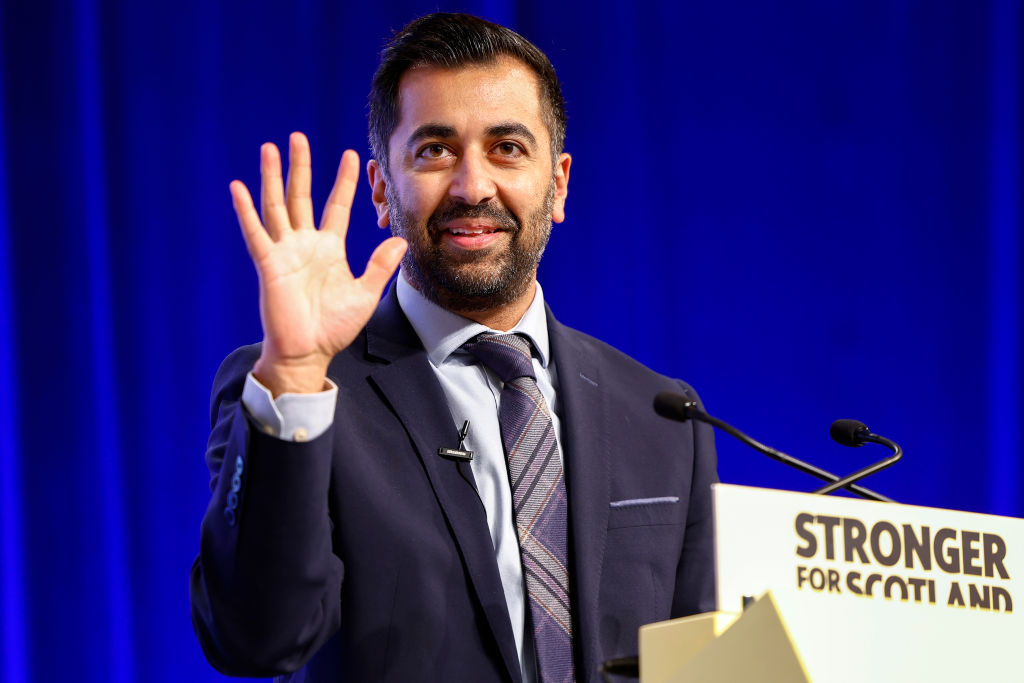It runs a vast budget deficit. It keeps raising taxes way above its neighbour. It spends wildly, it is at war with its major industry, and its former leader has been arrested over an investigation into missing party funds. But, heck, never mind about that. Humza Yousaf, the leader of the Scottish National Party, has just decided the bond markets will now have the privilege of ignoring Switzerland and Norway for a few days and can lend a few billion to Scotland instead. There is just a small problem, however. Why would anyone want to lend money to Humza?
It was certainly an ambitious proposal. In his conference speech, Humza Yousaf announced plans to tap the bond markets directly. Using powers granted after the independence referendum, the Scottish administration is allowed to borrow up to £3 billion on its own account. According to the First Minister, the money could be invested in houses and infrastructure.
Here’s the problem, however. Scotland under the management of the SNP is hardly an appealing risk. The latest figures show that it ran a budget deficit of 9 per cent of GDP, admittedly down from the 23 per cent it hit during the pandemic, but double the level of Italy. It has raised taxes significantly above England, even though it is its nearest economic rival. It has no idea whether it wants to use the pound, the euro, or its own currency if it becomes independent. It has campaigned against the North Sea oil industry although that remains the most secure part of its tax base. It has a record of financial mismanagement of major projects that makes Zimbabwe look well run. And its former leader Nicola Sturgeon is being investigated over missing money. Leaving Argentina aside, there is hardly a more toxic mix anywhere in the world. Forget AAA or A-, the usual rankings of the credit rating agencies that assess major developed nations. Scotland would be ZZZ, and even that is probably too generous.
True, a Scottish bond would be guaranteed by Westminster. Even so, it would surely carry some form of risk premium to compensate for the possibility that Scotland might achieve independence one day. Its price would be a daily reminder of how financial risky independence might prove. Yousaf can offer the markets the chance to lend money to his failing administration if he wants to. But he can hardly complain if investors politely decline to take him up on the offer – and stick to German bunds or American Treasury bills instead.






Comments